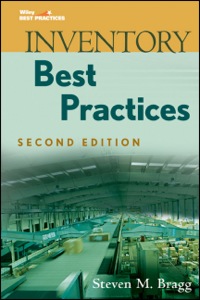Question
A local retailer plans to sell cashmere sweaters in its regular catalog for $150 each. The manager estimates that the demand can be characterized by
A local retailer plans to sell cashmere sweaters in its regular catalog for $150 each. The manager estimates that the demand can be characterized by a triangular distribution with a minimum, most likely, and maximum sales of 2000, 3000, and 5,000 units, respectively. Toward the end of the season, the retailer sends out a clearance catalog with discounted prices on unsold items. Understandably, the discounted price determines the demand in response to the clearance catalog. The manager has decided to charge a discount price of p = max ($25, $150n/20), where n is the number of sweaters left over after the regular catalog. At this clearance price p, the manager believes that the demand for cashmere sweaters follows a normal distribution with a mean of 10005p and a standard deviation of (10005p)/3. If there are still any leftover sweaters after clearance catalog, they will be donated to a local charity. Each sweater costs the retailer $50. As such, the donation to charity will generate $20 in tax benefits. The manager would like to identify the optimal number of sweaters to order at the beginning of the winter season. Please run a simulation for 1000 times with order quantities from 2000 to 5000 with increment of 500. Can you give the manager a suggestion on how many sweaters to order based on the criterion of maximizing the average (expected) profit? Please use the template down below.
PLEASE USE EXCEL FORMULAS CLEARLY AND DO NOT USE RISK FUNCTION FOR THUMBS UP!!!!!!!!
| Problem data | Triangular distribution | |||||||||||||||
| Discount price | Minimum | 2000 | ||||||||||||||
| Regular price | 150 | Most likely | 3000 | |||||||||||||
| Clearance demand (normal) | Maximum | 5000 | ||||||||||||||
| Regular demand (triangular) | Mean | Range | Range = Max - Min | |||||||||||||
| Minimum | 2000 | Standard deviation | Ratio | Ratio = (MostLikely - Min)/Range | ||||||||||||
| Most likely | 3000 | Rand # | ||||||||||||||
| Maximum | 5000 | Tax benefit (donation) | 20 | per donated unit | Excel formula to generate a triangular input if range names are properly defined. | |||||||||||
| =IF(Rand | ||||||||||||||||
| Quantity to order | 2000 | Order quantity to try | 2500 | 3000 | 3500 | 4000 | 4500 | 5000 | ||||||||
| Simulation | Leftover | Clearance | Donated | Tax | ||||||||||||
| Regular demand | Cost | Regular revenue | Leftover | demand | revenue | unit | benefit | Profit | ||||||||
| Summary measures | ||||||||||||||||
| Order quantity | ||||||||||||||||
| Average | ||||||||||||||||
| Standard deviation | ||||||||||||||||
| Best order quantity: | ||||||||||||||||
Step by Step Solution
There are 3 Steps involved in it
Step: 1

Get Instant Access to Expert-Tailored Solutions
See step-by-step solutions with expert insights and AI powered tools for academic success
Step: 2

Step: 3

Ace Your Homework with AI
Get the answers you need in no time with our AI-driven, step-by-step assistance
Get Started


